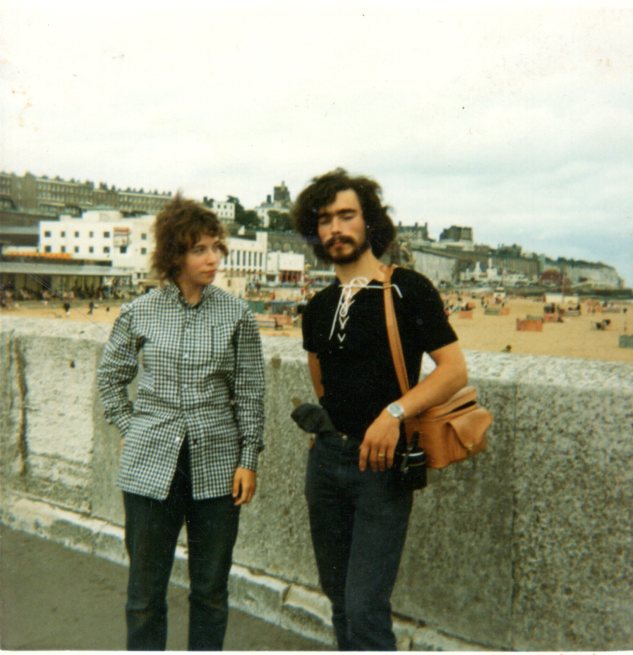My name is John Rains, and much of what you need to know about this site is posted on the About the Project page. This is about the person, me.
I was born in England in 1949 and raised in post-World War II Kent in southeast England. With a high IQ, I earned a scholarship to a public school for my secondary education after excelling in the eleven-plus exam at age eleven. In England, public schools are actually private institutions established by religious organizations to educate students for service to the church. Although my father selected the school, it focused more on the arts, whereas my interests leaned towards physics, mathematics, and music. This mismatch led me to leave the school and enroll at Northwest Kent College of Technology while working as a lab technician in semiconductor development.
During my time at Woolwich Polytechnic University, I worked on the cutting-edge Molins System 24 project, which revolutionized automation in light alloy part manufacturing. This project, utilizing IBM mainframes and Ferranti NC controllers, caught the attention of IBM representatives who acquired the project and relocated its development to Rochester, Minnesota. In October 1971, shortly after graduating, my wife and I embarked on a life-changing journey to America, leaving behind familiar surroundings for the unknown.
Upon arriving in Rochester, MN, we were greeted by a picturesque locale and the challenges of adapting to a new climate. Despite initial reservations fueled by media portrayals of America, we quickly embraced our new home. The vibrant community of Rochester, with its diverse population due to the Mayo Clinic and IBM presence, offered us opportunities to explore and grow. Over time, I honed my engineering skills and expanded my horizons through assignments in various cities across the United States.
What was intended as a two-year project extended into a fulfilling career path that led me to Richmond, VA, where I joined Molins’ US Sales office. As I progressed professionally, my focus shifted from pursuing graduate education to excelling in my role as an Electrical Engineering Manager. I spearheaded innovative solutions in automated testing, incorporating microprocessors and mastering programming languages like PL/1, C, and Object Pascal.
My career trajectory took unexpected turns as I delved into diverse projects, including developing advanced control systems for tobacco machinery. Noteworthy among these was the creation of a pioneering moisture content sensor and control system for Lancaster Leaf in Harrisburg, Pennsylvania, showcasing early applications of machine learning concepts. Amidst professional achievements, personal challenges arose, leading to a period of self-discovery and transformation.
As life unfolded, I found solace in physical activities like racquetball and aerobics, leveraging these pursuits to navigate personal struggles. Embracing my identity as an introvert with Asperger’s, I channeled my inner strength to overcome obstacles and thrive in both my career and personal life. Along this journey, I met my second wife and embarked on new professional endeavors, moving in to leadership roles within the Automated Scoring Division at AMF Bowling, and culminating in yet another diversification with Circuit City Stores, heading their automation in 19 distribution warehouses.
Each chapter of my life has woven together a tapestry of experiences that have shaped me into the person I am today—a testament to resilience, adaptability, and the pursuit of excellence.” And then, my life in the church as a Pentecostal minister.
I suppose I’m still hanging on 🙂, despite some close calls. In the photo, you see me a few weeks before heading to America, standing with my younger sister, Eileen, whom I catch up with on Skype every other Monday. The camera slung over my shoulder is a Zenit-E, a Soviet-manufactured camera known for its Leica-based shutter mechanism and Zeiss-based lens – my inaugural SLR camera. While in Rochester, I made the switch to Canon and have remained loyal to the brand ever since. If you glance at my collection, you’ll notice the evolution.
I’ve omitted details about my years as a musician, the struggles with heroin in the ’60s, and the pivotal moment when I had to choose between a life consumed by drugs as a musician or a path as an engineer. You’re aware of the choice I made, but what you might not know is how I distanced myself entirely from music. It wasn’t until my involvement in prison ministry nearly three decades later that I rediscovered my passion for music. I started playing and singing contemporary Christian songs. Though I still strive to continue, the onset of arthritis in my left hand poses a challenge.
